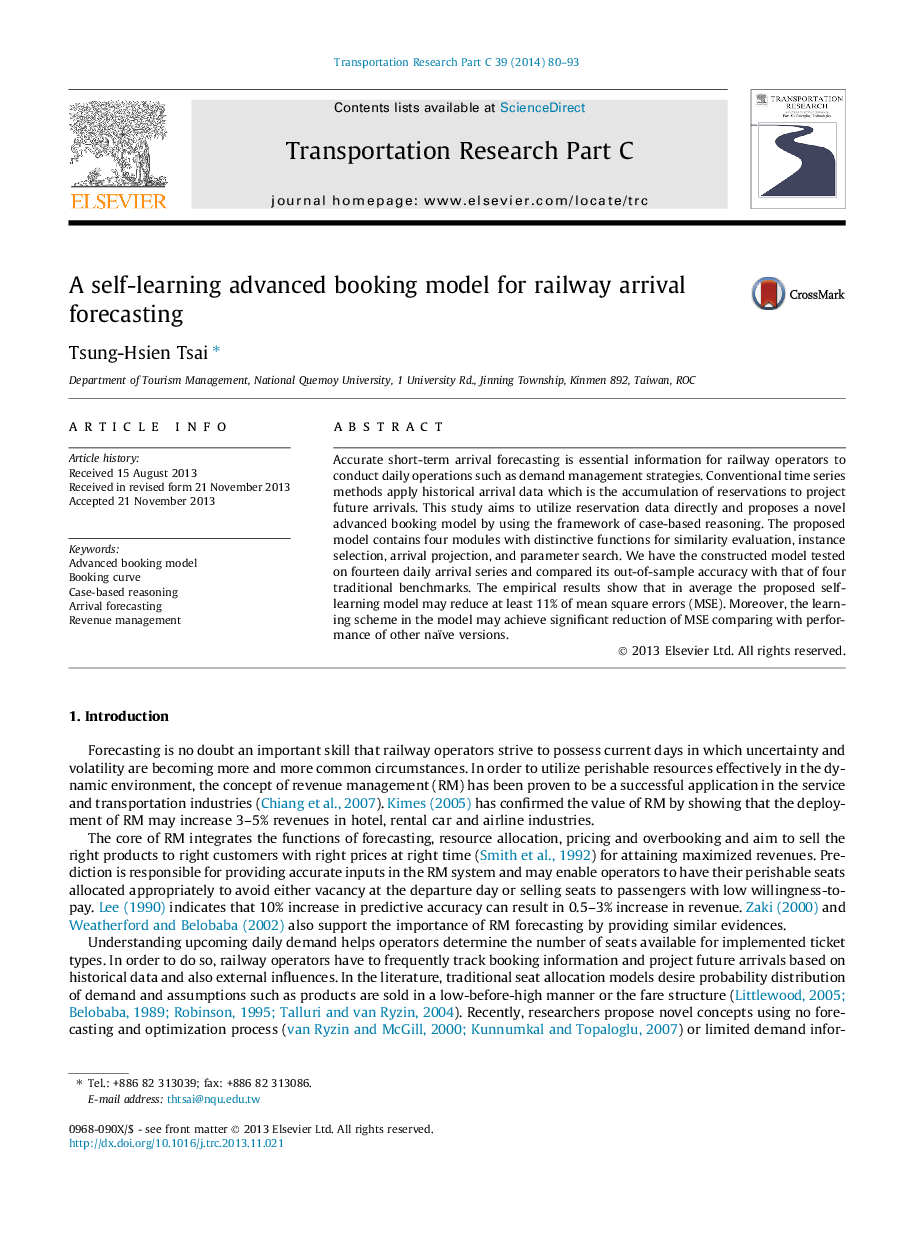| Article ID | Journal | Published Year | Pages | File Type |
|---|---|---|---|---|
| 524904 | Transportation Research Part C: Emerging Technologies | 2014 | 14 Pages |
•This paper utilizes reservation rather than arrival data for model construction.•The proposed model contains four modules with distinctive functions.•Temporal features are inspired from data and incorporated in the modules.•The self-learning scheme may significantly reduce forecasting errors.•The model obtains at least 11% reduction of MSE comparing with benchmarks.
Accurate short-term arrival forecasting is essential information for railway operators to conduct daily operations such as demand management strategies. Conventional time series methods apply historical arrival data which is the accumulation of reservations to project future arrivals. This study aims to utilize reservation data directly and proposes a novel advanced booking model by using the framework of case-based reasoning. The proposed model contains four modules with distinctive functions for similarity evaluation, instance selection, arrival projection, and parameter search. We have the constructed model tested on fourteen daily arrival series and compared its out-of-sample accuracy with that of four traditional benchmarks. The empirical results show that in average the proposed self-learning model may reduce at least 11% of mean square errors (MSE). Moreover, the learning scheme in the model may achieve significant reduction of MSE comparing with performance of other naïve versions.
